- Home
- Jack Higgins
The Killing Ground Page 5
The Killing Ground Read online
Page 5
“You’d hardly notice, Major.” He produced a throw rug and laid it down. “There you are.”
She saw them out, then walked down the track beside the canal. Jamal was sitting behind the wheel and she leaned down.
He started violently and she tapped the Walther on the van. “Don’t try anything,” she said in Arabic. “The Army of God is one man down. I’ve shot Abu dead and my people have taken him away. If he’s lucky, all those virgins are waiting in Paradise; if not, you’ve all been sold a bill of goods.”
“But who are you?” he asked in English.
“British intelligence. And I’ve got a message for you to deliver. Tell your boss, Professor Khan, we’re on to him. His little army is out of business, starting today, or you’ll all be following in Abu’s footsteps. Is that clear?”
Jamal said nothing, but his forehead was sweating. Greta turned and walked away, the engine started up behind her and she heard the van squeal off.
* * * *
HER CODEX WENT and Roper said, “We’re all set. We even replaced the window and swept up the glass, so there should be no sign of what went on. You okay on your end?”
“Yes. Tell me, Roper, does the name of a Professor Khan mean anything to you? It certainly did to Abu and Jamal the van driver.”
“No, it doesn’t ring a bell.”
“I think if you put said professor through the wringer, you might get a surprise.”
“I might just do that.”
Which he did and immediately opened an incredible can of worms.
* * * *
WHEN MOLLY RASHID came out of the hospital, it was close to eight o’clock and it was wet and miserable out. She slid into the car. “I’m absolutely bushed.”
“Hard day?” Greta asked.
“Never stopped. One operation after another. Frankly, all I want is a sandwich and then bed. What about you?”
“Oh, the usual kind of day. Bloody boring.” Greta laughed as she drove away. “Come on, let’s get you home.”
BAGHDAD
Chapter 3
THE DEAL ROPER HAD MADE WITH JACK SAVAGE HAD been enough to make him sit up and take notice, especially as the payment would be in American dollars. They had known each other well during the Irish troubles, Roper up to his ears in bomb disposal work, Savage chasing gun runners by night in the Irish Sea. When they had discussed Roper’s requirements Roper had told him of Dillon and Billy, of Sara Rashid, and their intention of spiriting her away. Savage couldn’t care less what they were up to, the deal was so good there was no way he was turning it down.
His wife, Rawan, saw things differently. A couple of years ago, Abdul Rashid had used his connections to spirit her parents out of Iraq to Jordan after extremists had burned their houseboat on the river. She owed him one.
When her husband explained what their guests would be doing when they arrived, she made it clear she didn’t approve.
“Listen,” he said. “I’m not turning down a payday like this, and the connection with British intelligence is likely to be worth even more in the future. Just get that through your head.”
“Bastard,” she said, “Money-that’s all you care about. You can sleep on the deck tonight.”
“I’m not missing much. It suits me fine.” He grabbed a couple of rugs, a bottle of scotch and went on deck.
The only major point that Roper had got wrong was that Sara Rashid wouldn’t be running anywhere, because her grandfather had arranged to have her fitted with leg irons after her persistent attempts to escape.
She had been locked in a bedroom for most of each day. For exercise she was given the chance to walk in the gardens and orange groves, but there were guards with her armed with AK assault rifles, and her cousin Hussein, who one day would marry her, was always one of them.
She was treated with due respect by the guards, in fact by all the servants, for her grandfather was not only rich but powerful, his connections with Osama bin Laden and the Army of God well known.
His love for Sara was genuine and very deep, especially since the death of his own wife, one of seventy-two other people killed in a car bombing in downtown Baghdad. The fact that Sara was of mixed race, he could accept, but his son forswearing his religion, that was an abomination.
Sara, mature beyond her years, sat in her room and, with little better to do, improved her Arabic, and contemplated what her grandfather had told her, that they would eventually be forced to join the exodus of middle-class Iraqis from Baghdad. Hazar would be their destination, to join her grandfather’s brother, Jemal, head of the family in that country. They were rich, and the Rashid Bedouins lived in the Empty Quarter, one of the most ferocious deserts in the world. It would be a guarantee of safety.
So, that was the way things would probably work out. Outside now on one of her walks, the wind off the water played with the wonderful silk scarf that framed her face. She was pretty and she knew it. Hussein adored her and she took full advantage of that fact.
“Do you want to return to your room?”
“Not yet. Who is that?” She pointed to a shabby motor launch approaching. As it slowed and drifted into the jetty, she saw that it was a woman at the wheel, dressed in Western style, her hair tied back, wearing a khaki bush shirt and pants and a shoulder holster under her left arm. The woman tossed a line and one of the men caught it and tied up. The launch had an English name-Eagle.
“Hussein, how are you?” she said.
“I’d rather be doing my final year at medical school, but there you are. The war, the war, the bloody war. This is Sara. Sara, this is Rawan Savage.”
She turned to Sara. “I’ve known you were here for some months, but we’ve never had an opportunity to meet. My, you are pretty, aren’t you?” All this was delivered in English.
Sara said, “Were you born in Baghdad?”
“Yes, but to a Druze family.” She turned to face Hussein. “I need to see your uncle right away, Hussein. Can I go up?”
“Of course. He’s in the orange grove.”
“Until I see you again,” she said to Sara, and started up the steps leading through the oranges to where Rashid was seated.
Rashid greeted her courteously, and leaned close to her while she spoke, and when she had finished, he placed his hand on her head in a blessing. She stood up and returned to the boat. He called to Hussein.
“Wait for me here,” Hussein said and mounted the steps. “Uncle?”
“See Sara goes to her room and I’ll send women to help her pack.”
“Pack, Uncle?”
“I’ve prepared for this day for months. It is time for us to go. She’ll need a woman, take Jasmine. We’ll need two Land Rovers, I think, three of the men to assist with security. You’re in charge.”
“But where are we to go?”
“ Kuwait. Only four hundred miles by road. The instructions are in the briefcase I’ll give you. My people there will make all arrangements for your onward flight to my brother Jemal in Hazar.”
“But why, Uncle?”
“Rawan brought me disturbing news. That her husband is engaged in a plot with two men from England, named Dillon and Salter, to kidnap Sara and return her to my son in London.”
“This cannot be,” Hussein said.
“I have made what I trust will be a suitable greeting for them. She informs me they arrive later today.”
“Then I’ll deal with them.”
“No-I hope I have taken care of it. Sara is my most precious jewel. You are the only one I can trust. Swear to me you will guard her with your life, always.”
“In the name of Allah, I swear it.”
“Go now, and Allah go with you,” and he turned and went in, content, for Hussein Rashid was no ordinary man. Twenty-three years of age, dark hair but blue eyes, he could have passed as a Western European. He was slim but muscular, and hugely intelligent, and when his anger sparked in the eyes, he changed, became truly frightening, the warrior few people realized he was.
&nb
sp; He’d been a medical student at Harvard when the Gulf War started, and had immediately packed his bags to go home, only to be arrested at Logan Airport in Boston. It was six months before lawyers succeeded in obtaining his freedom, and he had gone home to discover that his parents had been killed in a bombing raid three months earlier.
His uncle had kept him sane during the bad time, had provided him with money, set up accounts for him in Paris and London, had provided him with addresses, the right people to see, people who would pass him hand by hand until he reached the camp in the Algerian Desert. There they’d turned him into the man known as the Hammer of God, and it was there that he’d grown the luxuriant long hair and the beard that became his trademark.
He was not a religious fanatic, hardly religious at all, but he’d discovered his true calling there: to be a soldier. They’d taught him everything, and by the time he was done, he was an expert in weaponry, explosives, hand-to-hand fighting, vehicles and the fine art of assassination. His medical training was just a bonus. They even taught him to fly.
He had worked for what some people might call terrorist organizations in such places as Chechnya and Kosovo, but his specialty had been assassination and he had become a master. In the mess that Iraq developed into, he had lived with his uncle, operating as a freelance sniper. His personal score was twenty-seven American and British soldiers and Iraqi politicians. It was all the same to Hussein. And then his uncle had kidnapped Sara and everything changed.
* * * *
IN LONDON, Roper wished them well and grinned as Dillon and Billy made final preparations for departure.
“Got everything?” he asked.
“Of course,” Billy told him as he zipped up an aircraft bag. “What would we bloody leave, for God’s sake?”
“There’s always your Codex Four.”
“Very funny,” Billy said.
“Never mind, Billy, you’re going off to war, and you know from experience, there’s nothing like a nice war. Try not to get your head blown off.”
“Yes, well, you’ve got Ferguson to think about. What if he phones up and tells you he wants his plane?”
“You mean I could get the sack? I doubt it.” Roper smiled. “I inhabit a wheelchair and I’ve got medals. As for the Gulfstream, didn’t he tell Dillon he was sending it back in case of emergencies?”
“So he did. Mind you, he might think Baghdad a bit of a stretch.”
“We’ll worry about that when we have to. Now get moving. Sergeant Doyle’s waiting with the Land Rover. Try not to screw up.”
“As if we would.”
They left, and ten minutes later Ferguson did come on the line. “How are things going?”
“You mean at the coal face, sir?”
“Is that a reprimand, Roper?”
“Now, would I imply that you weren’t beating your brains out, General, taking care of world affairs?”
“Well, we were up half the night and I’m just about to join the conference again. Anything to report?”
“Not a whisper, sir. It’s as if every terrorist in the land has rolled over and died. The chaps are all polishing their nails.”
“You’re incorrigible, Roper.” A bell sounded faintly. “Must go. I’ll be in touch.”
“Yes, sir, I look forward to it.”
Roper poured a large scotch, lit a cigarette and continued his investigation of the mysterious Professor Khan.
* * * *
AT FARLEY FIELD, the quartermaster had loaded their supplies and weaponry. Two AKs, a couple of.25 Colts with hollow-point cartridges and ankle holster, titanium waistcoats.
“Nothing left to chance, Sergeant Major.”
“I don’t believe it should be, Mr. Dillon, that’s not the way to operate. Good luck, gentlemen.”
At the top of the steps, Parry, in flying overalls, reached a hand out and a car horn sounded and the Aston came round from the entrance and pulled up, Harry at the wheel. He ran forward, and as Billy turned, he flung his arms round him.
“Take care.”
Dillon said, “I always knew you were a sentimentalist at heart.”
“You think what you like, as long as you bring him back.”
They went up the steps into the Gulfstream. Parry closed the door and joined Lacey in the cockpit. Billy and Dillon settled down, and a few minutes later the Gulfstream took off.
* * * *
ROPER CAME ONLINE two hours into the flight. “Is everything going all right?”
“Fine. What about you?” Dillon asked.
“Professor Khan is proving more than promising. Dreq Khan is his name, he was a clever young man who took a first degree at home in Pakistan, then earned a scholarship to Oxford. Totally Anglicized now, with apparently an unlimited supply of cash. He started as an assistant lecturer in morality at Leeds University.”
Billy laughed. “Sorry, I didn’t know you could be one of those.”
“Apparently. Left after a year and moved to America, the University of Chicago, then a year later to Berkeley in California.”
Dillon said, “You see, Billy, he couldn’t resist the call of Hollywood.”
“Came back East for a post at the United Nations. Secretary to the International Committee for Racial Harmony.”
“Let me guess,” Dillon said. “After that, he finally made it back to good old England. Londonistan.”
“Right you are, and he’s certainly made his way in politics. The Committee for Socialist Values-that really made his bones in London, got him in good with a lot of well-meaning Socialists. He’s also on the Interfaith Committee at the House of Commons and is sponsored by various Anglican bishops. He’s muted his support for the Army of God ever since three of its members were arrested in Yorkshire for that bomb in a bus station that killed three and injured fourteen. But he insists that those three were a splinter group, that the organization itself is purely spiritual and educational.”
Billy said, “What do you think?”
“I think he’s dangerous as hell, and all those committees just obscure what he really is.”
Roper said, “I’ve never been so certain of anything in my life. But there’s no proof of anything, not even a whisper of terrorist activity. There’s nothing to spark an investigation by the police antiterrorist squad.”
Dillon said, “Except that when Greta raised the question of Professor Khan with that driver and told him she’d killed Abu, he was terrified.”
“And made no attempt to deny it,” Billy said.
“It’s still not enough,” Roper said. “But I’ll keep at it. I heard from Ferguson.”
“What did you hear?” Dillon said.
“Only that he keeps going into conference with the Prime Minister and the great and the good.”
“Has he indicated when he’s coming back?”
“Not exactly. I wouldn’t give it more than a couple of days, so it’s all up to you gentlemen. Keep in touch.”
He clicked off.
* * * *
AN HOUR OUT OF BAGHDAD, with dawn coming up fast, they descended to thirty thousand feet. There was considerable traffic and Parry came back from the cockpit to fill them in.
“We’re doing night approach, which means the sods on the ground don’t have as good a view-the ragged-arse brigade are good, unfortunately, particularly with handheld missiles. A lot of helicopters get wasted over the city.”
“So what’s the solution?” Billy asked.
“It’s a trick the Yanks resurrected from the Vietnam War. We approach from fifteen thousand, then dive. Pull up only at the last possible moment.”
“That sounds pretty hairy to me,” Billy said.
“But it works. The RAF used it in Kosovo, too, and with larger planes. Now, as to what’s facing you down there, I know you gentlemen have done this once before, so I’ll only say it’s even worse. There’s an old saying: Hell is a city. Well, gentlemen, I doubt whether anywhere in the world could be worse than Baghdad. Take care at all times, and re
member-in this town, you can’t even trust your grandmother.”
“The last time we did this,” Dillon said, “we were cared for by a Flight Lieutenant Robson. He was police.”
“Still at it. Squadron leader now. He’s already been on the radio. Everything’s waiting.”
“And we had a safe car, with an RAF police sergeant named Parker. A really good guy. He stood by us in a firefight,” Dillon said. “Do we get him again?”
“Unfortunately not. He was killed by a roadside bomb last month. I’d better join Lacey now.”
“Jesus,” Billy said. “What a bloody place.” As he looked down to the city below, there was an explosion, a mushroom cloud of smoke rising from the damage.
“Never mind, Billy, you’ve seen worse.” Dillon took out his flask, unscrewed the cap and swallowed a generous mouthful of Bush-mills.
“No, Dillon, I don’t think I have.” Billy leaned back and closed his eyes for the descent.
* * * *
IN BAGHDAD, they were received in the mess by Robson himself, as a waiter in a white tunic arranged tea things. Robson said, “So bloody hot in this hellhole. Tea’s just the thing, as they discovered in the days of the Raj. Well, things have certainly been happening to you,” he told Lacey and Parry. “Awarded a second Air Force Cross each. What are you doing? Trying to fight the war on your own?”
“Something like that,” Lacey told him.
As the tea was poured, Robson turned to Dillon and Billy. “I won’t ask what you two have been up to. I don’t know and I don’t want to. Just like last time, the Gulfstream will stand by here ready for an immediate exit at any time. I have a red Security One tag for each of you. It covers everything. You must be hot stuff. Even the station commander doesn’t have one of these.”
Dillon said, “I’m sorry to hear of Sergeant Parker’s death.”

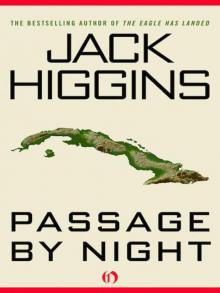 Passage by Night (v5)
Passage by Night (v5)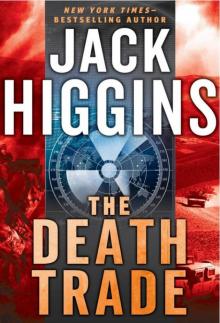 The Death Trade sd-20
The Death Trade sd-20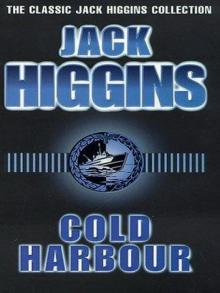 Cold Harbour
Cold Harbour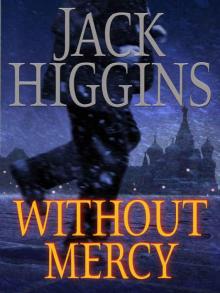 Without Mercy
Without Mercy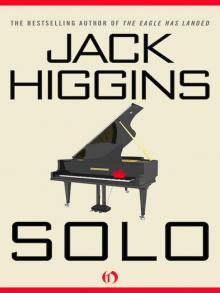 Solo (Aka the Cretan Lover)(1980)
Solo (Aka the Cretan Lover)(1980)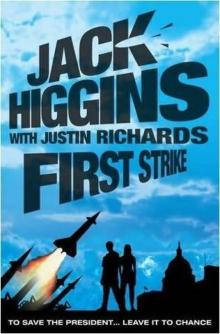 First Strike
First Strike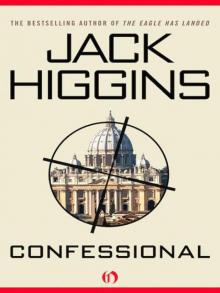 Confessional - Devlin 03 (v5)
Confessional - Devlin 03 (v5)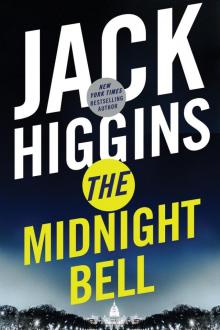 The Midnight Bell
The Midnight Bell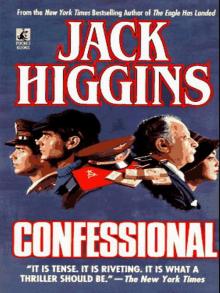 Confessional
Confessional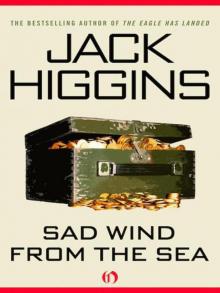 Sad Wind from the Sea (v5)
Sad Wind from the Sea (v5)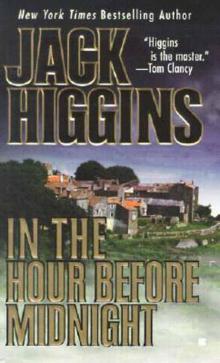 In The Hour Before Midnight aka The Sicilian Heritage
In The Hour Before Midnight aka The Sicilian Heritage Wrath of the Lion
Wrath of the Lion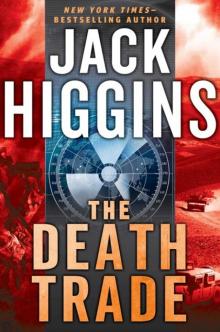 SDillon 20 - The Death Trade
SDillon 20 - The Death Trade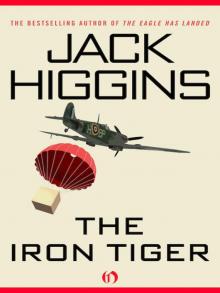 the Iron Tiger (1974)
the Iron Tiger (1974)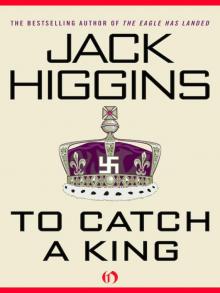 To Catch a King
To Catch a King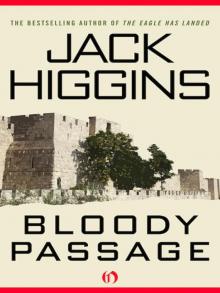 Bloody Passage (1999)
Bloody Passage (1999)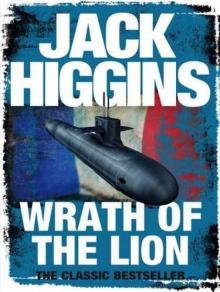 Wrath of the Lion sd-8
Wrath of the Lion sd-8 Sharp Shot
Sharp Shot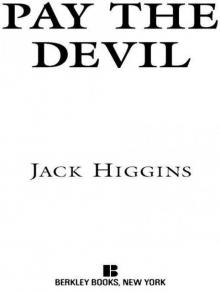 Pay the Devil (v5)
Pay the Devil (v5) A Devil Is Waiting
A Devil Is Waiting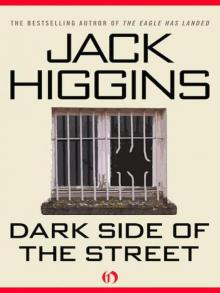 Dark Side of the Street - Simon Vaughn 01 (v5)
Dark Side of the Street - Simon Vaughn 01 (v5)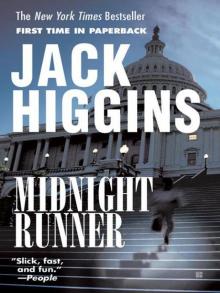 Midnight Runner - Sean Dillon 10
Midnight Runner - Sean Dillon 10 Wrath of God
Wrath of God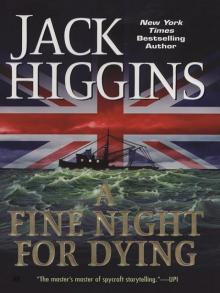 A Fine Night for Dying
A Fine Night for Dying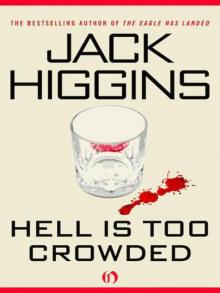 Hell Is Too Crowded v5)
Hell Is Too Crowded v5)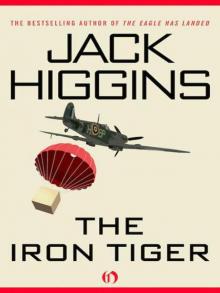 the Iron Tiger (v5)
the Iron Tiger (v5)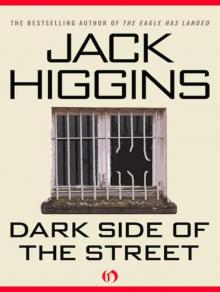 Dark Side of the Street pc-5
Dark Side of the Street pc-5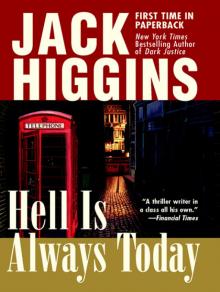 Hell Is Always Today
Hell Is Always Today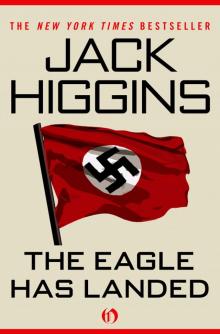 Eagle Has Landed
Eagle Has Landed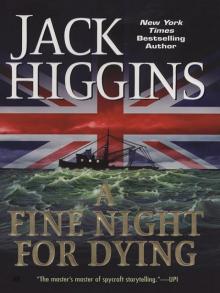 A Fine Night for Dying pc-6
A Fine Night for Dying pc-6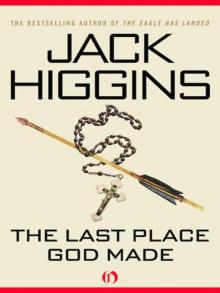 the Last Place God Made (v5)
the Last Place God Made (v5)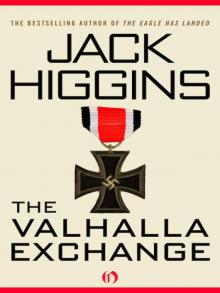 the Valhalla Exchange (1976)
the Valhalla Exchange (1976)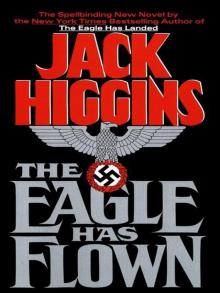 The Eagle Has Flown
The Eagle Has Flown Sure Fire
Sure Fire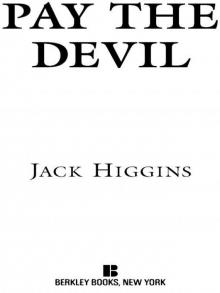 Pay the Devil (1999)
Pay the Devil (1999)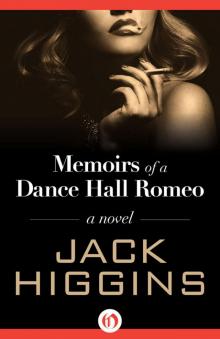 Memoirs of a Dance Hall Romeo
Memoirs of a Dance Hall Romeo![a Prayer for the Dying (1974)[1] Read online](http://i1.bookreadfree.com/i1/04/02/a_prayer_for_the_dying_19741_preview.jpg) a Prayer for the Dying (1974)[1]
a Prayer for the Dying (1974)[1]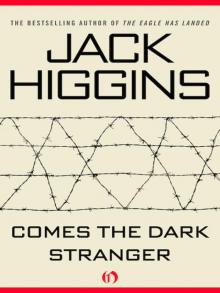 Comes the Dark Stranger
Comes the Dark Stranger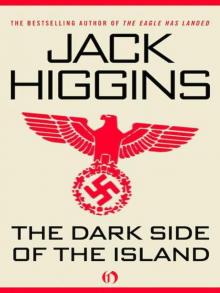 Dark Side Of the Island (v5)
Dark Side Of the Island (v5)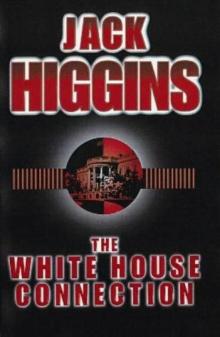 The White House Connection sd-7
The White House Connection sd-7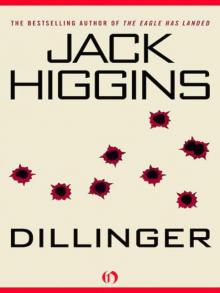 Dillinger (v5)
Dillinger (v5) Eye of the Storm
Eye of the Storm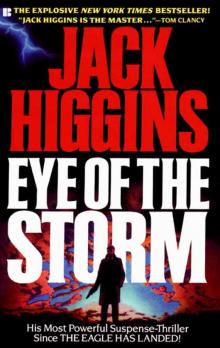 Eye Of The Storm aka Midnight Man
Eye Of The Storm aka Midnight Man A Darker Place
A Darker Place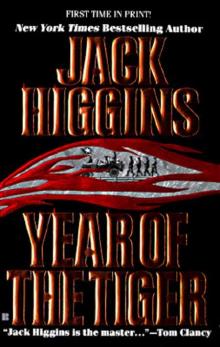 Year Of The Tiger
Year Of The Tiger Death Run
Death Run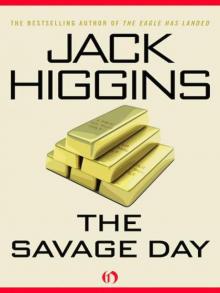 the Savage Day - Simon Vaughn 02 (v5)
the Savage Day - Simon Vaughn 02 (v5)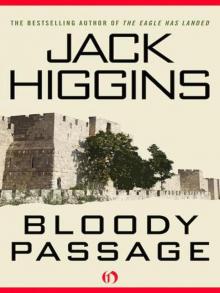 Bloody Passage (v5)
Bloody Passage (v5)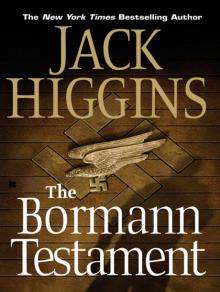 The Bormann Testament
The Bormann Testament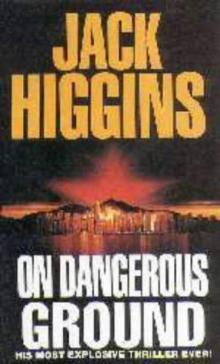 On dangerous ground sd-3
On dangerous ground sd-3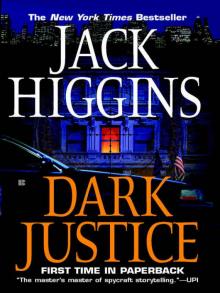 Dark Justice
Dark Justice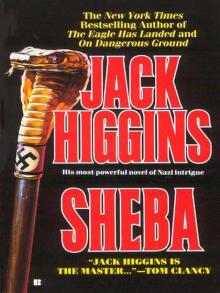 Sheba
Sheba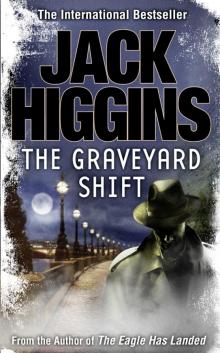 The Graveyard Shift
The Graveyard Shift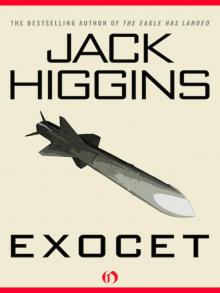 Exocet (1983)
Exocet (1983)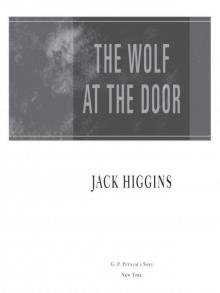 The Wolf at the Door
The Wolf at the Door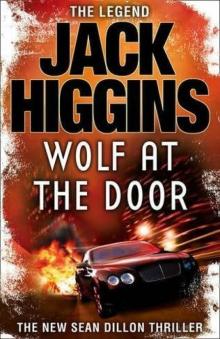 The wolf at the door sd-17
The wolf at the door sd-17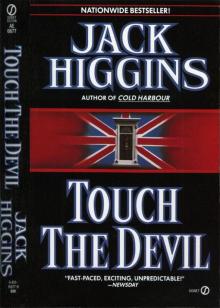 Touch The Devil
Touch The Devil The President’s Daughter
The President’s Daughter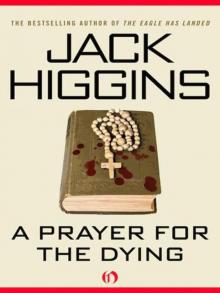 A Prayer for the Dying (v5)
A Prayer for the Dying (v5)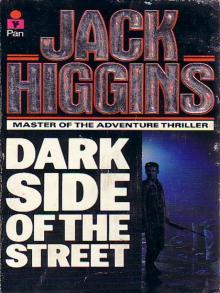 Dark Side Of The Street
Dark Side Of The Street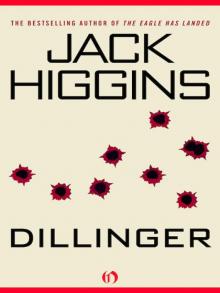 Dillinger (1983)
Dillinger (1983)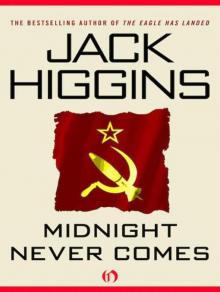 Midnight Never Comes pc-4
Midnight Never Comes pc-4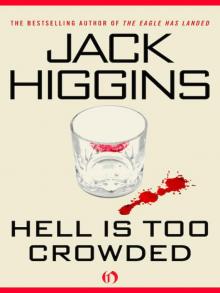 Hell Is Too Crowded (1991)
Hell Is Too Crowded (1991)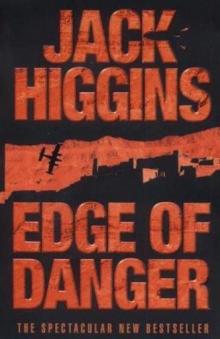 Edge of Danger sd-9
Edge of Danger sd-9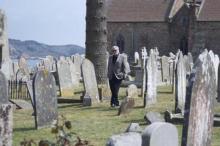 The Thousand Faces of Night (v5)
The Thousand Faces of Night (v5)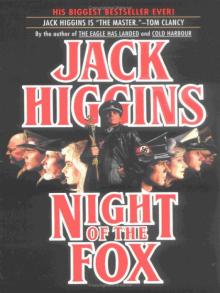 Night Of The Fox
Night Of The Fox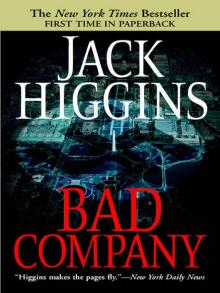 Bad Company
Bad Company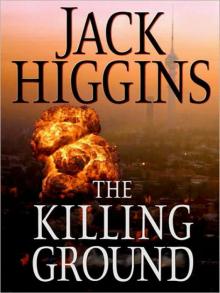 The Killing Ground
The Killing Ground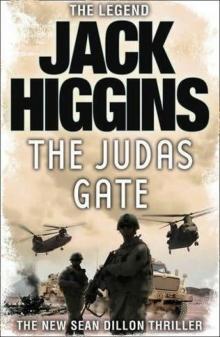 The Judas gate sd-18
The Judas gate sd-18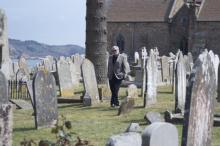 The Thousand Faces of Night (1961)
The Thousand Faces of Night (1961) Solo (Aka the Cretan Lover) (v5)
Solo (Aka the Cretan Lover) (v5)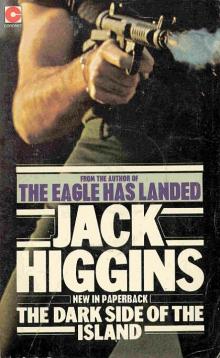 The Dark Side Of The Island
The Dark Side Of The Island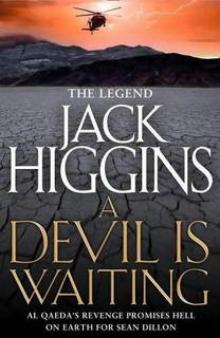 A Devil is vaiting sd-19
A Devil is vaiting sd-19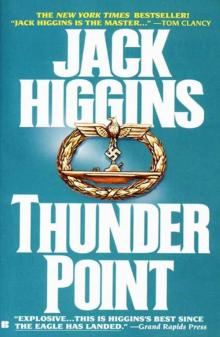 Thunder Point
Thunder Point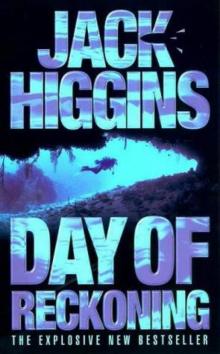 Day of Reckoning sd-8
Day of Reckoning sd-8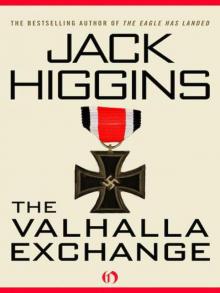 the Valhalla Exchange (v5)
the Valhalla Exchange (v5)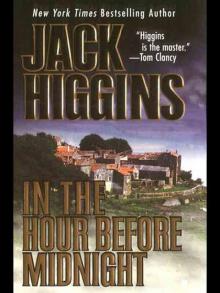 In the Hour Before Midnight
In the Hour Before Midnight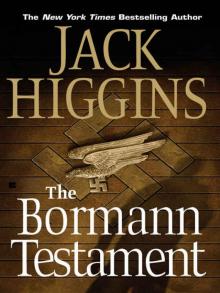 The Bormann Testament (The Testament of Caspar Schultz)
The Bormann Testament (The Testament of Caspar Schultz) The Judas Gate
The Judas Gate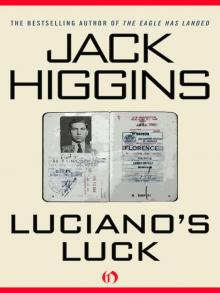 Luciano's Luck
Luciano's Luck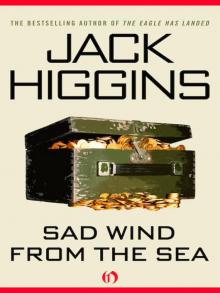 Sad Wind from the Sea (1959)
Sad Wind from the Sea (1959)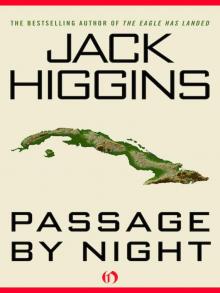 Passage by Night (1987)
Passage by Night (1987)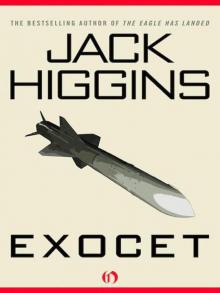 Exocet (v5)
Exocet (v5)